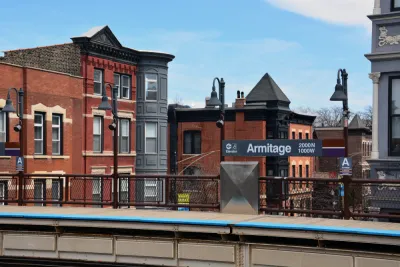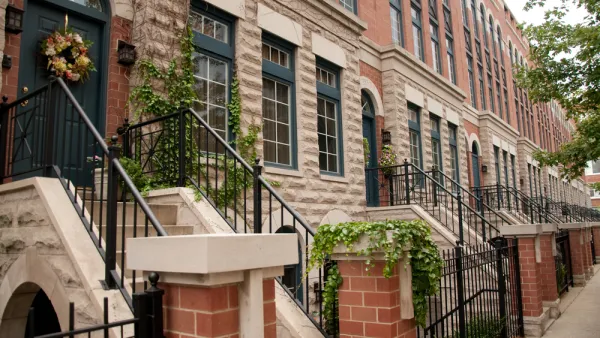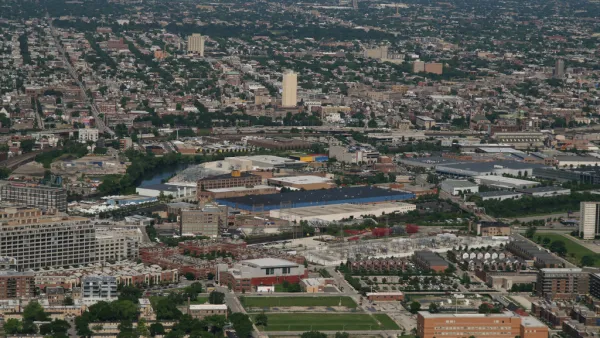The city is seeing a rapid loss of its signature two-, three-, and four-flat residential buildings, which historically served as affordable housing for working-class families.

"A report from the Institute for Housing Studies at DePaul University released Thursday shows Chicago has lost more than 4,800 two- to four-unit buildings since 2013, representing 11,775 rental and owner-occupied housing units," writes Hannah Alani in Block Club Chicago. But wealthy and poor neighborhoods are losing this housing stock "for starkly different reasons."
Across the city, 47.5 percent of demolished two-, three-, and four-flats "were replaced with a single-family home through conversion, or demolition and new construction, with the work being done mostly in North Side neighborhoods." But "about one-third of the city’s flats gave way to vacant land, with that happening mostly in South and West side neighborhoods dealing with disinvestment, long-term population loss and a foreclosure crisis."
Neighborhoods like Lincoln Park are quickly losing what was once "ample housing stock for working-class families," writes Alani. According to the DePaul research, "1,150 two- to four-unit buildings have been lost in lower-cost communities since 2013. Of those, 80.6 percent were converted to non-residential land uses. And of those, 89.1 percent are classified as vacant land."
To slow the conversion trend and preserve affordable multi-unit housing, city leaders are enacting ordinances that limit redevelopment or ban demolitions. "For example, the demolition ban along the Bloomingdale Trail prevents owners from tearing down two-flats and building single-family residences. An anti-deconversion ordinance in Pilsen aims to interrupt the loss of cheap housing stock in the gentrifying neighborhood. There’s also a new ordinance permitting a pilot program for Accessory Dwelling Units."

Analysis: Cybertruck Fatality Rate Far Exceeds That of Ford Pinto
The Tesla Cybertruck was recalled seven times last year.

National Parks Layoffs Will Cause Communities to Lose Billions
Thousands of essential park workers were laid off this week, just before the busy spring break season.

Retro-silient?: America’s First “Eco-burb,” The Woodlands Turns 50
A master-planned community north of Houston offers lessons on green infrastructure and resilient design, but falls short of its founder’s lofty affordability and walkability goals.

Test News Post 1
This is a summary

Analysis: Cybertruck Fatality Rate Far Exceeds That of Ford Pinto
The Tesla Cybertruck was recalled seven times last year.

Test News Headline 46
Test for the image on the front page.
Urban Design for Planners 1: Software Tools
This six-course series explores essential urban design concepts using open source software and equips planners with the tools they need to participate fully in the urban design process.
Planning for Universal Design
Learn the tools for implementing Universal Design in planning regulations.
EMC Planning Group, Inc.
Planetizen
Planetizen
Mpact (formerly Rail~Volution)
Great Falls Development Authority, Inc.
HUDs Office of Policy Development and Research
NYU Wagner Graduate School of Public Service




























